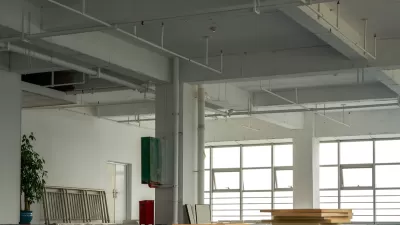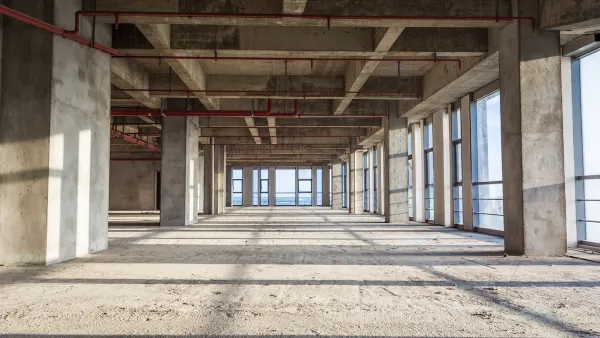The city is seeing rapid growth in residential development in its downtown core, signaling a shift to accommodate a reduced need for office space and a renewed interest in mixed-use, transit-oriented neighborhoods.

An article in the Pittsburgh Post-Gazette assesses the recent movement to convert downtown Pittsburgh’s increasingly vacant office buildings to housing. According to the article, more than 3,300 units have already been created via adaptive reuse, with 1,500 more in the planning stages.
While no one sees residential supplanting office Downtown as the dominant driver, experts say there is a need for a better mix, particularly in light of changing work habits caused by the pandemic.
The article lists several important buildings slated to be converted to apartments, condos, and hotel rooms, such as the Gulf Tower and the former GNC headquarters. The population is growing fast, with the occupancy rate at 93 percent. “Colliers reported that the average rent for a studio apartment is $1,384; for a one-bedroom, $1,522; for a two-bedroom, $2,188; and for a three-bedroom, a whopping $4,879.”
FULL STORY: From skyscrapers to studios: How the residential boom is transforming Downtown Pittsburgh

Maui's Vacation Rental Debate Turns Ugly
Verbal attacks, misinformation campaigns and fistfights plague a high-stakes debate to convert thousands of vacation rentals into long-term housing.

Planetizen Federal Action Tracker
A weekly monitor of how Trump’s orders and actions are impacting planners and planning in America.

In Urban Planning, AI Prompting Could be the New Design Thinking
Creativity has long been key to great urban design. What if we see AI as our new creative partner?

King County Supportive Housing Program Offers Hope for Unhoused Residents
The county is taking a ‘Housing First’ approach that prioritizes getting people into housing, then offering wraparound supportive services.

Researchers Use AI to Get Clearer Picture of US Housing
Analysts are using artificial intelligence to supercharge their research by allowing them to comb through data faster. Though these AI tools can be error prone, they save time and housing researchers are optimistic about the future.

Making Shared Micromobility More Inclusive
Cities and shared mobility system operators can do more to include people with disabilities in planning and operations, per a new report.
Urban Design for Planners 1: Software Tools
This six-course series explores essential urban design concepts using open source software and equips planners with the tools they need to participate fully in the urban design process.
Planning for Universal Design
Learn the tools for implementing Universal Design in planning regulations.
planning NEXT
Appalachian Highlands Housing Partners
Mpact (founded as Rail~Volution)
City of Camden Redevelopment Agency
City of Astoria
City of Portland
City of Laramie





























